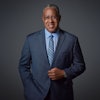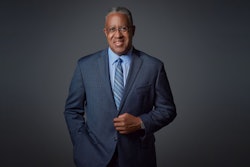Dr. John Silvanus Wilson Jr. looks back at his days as a Morehouse College student as a time when faculty, staff and administrators formed a campus community that was nurturing and family-oriented – a distinguishing characteristic of many of the nation’s historically Black colleges and universities.
“But I’m a little concerned that positive feature for some (HBCUs) is becoming more legend than reality,” said Wilson, the
That is just one of the aspects of HBCUs that Wilson, an assistant professor at The George Washington University, hopes to jumpstart as head of the office in the U.S. Department of Education that serves as a liaison for HBCUs, the White House and President Obama’s Board of Advisors on Historically Black Colleges and Universities.
His office issues to the president an annual report on the state of HBCUs and their participation in federal programs, advises the education secretary on increasing the federal role in strengthening HBCUs and reports to the president about increasing the private sector’s role in boosting HBCUs.
It has been an office that has had some tough years. Immediate past executive director Dr. Leonard Haynes was appointed by the Bush administration to the position in October 2007 after Charles M. Greene resigned from the post just 18 months into the job. Greene clashed with the board of advisors that was dissatisfied with his performance.
Issues of the office’s credibility had also risen around the country, an issue Haynes said he dove into head on.
“I’m confident that history will record that I made an outstanding contribution as executive director,” said Haynes, who added he wasn’t surprised by the change in leadership and will return, for the short term, to his post as senior advisor to the assistant secretary of education. “It’ll say, ‘Haynes revived an office without any life or without any meaning.”
Wilson sees himself as continuing that upward track, particularly with Obama’s mandate of change as a backdrop.
“Very obviously we’re going to have to have great relationships with the new administration, the board of advisors, presidents of the nation’s HBCUs and new constituents,” he said. “That is at the core of what we’re doing – relationship improvement. We appreciate the way Dr. Haynes moved in to do some of that repair work.”
That repair work, he said, extends into how HBCUs are able to do business. How they conduct business, Wilson stressed, is important as all schools need to thrive in order to achieve President Obama’s mandate that America leads the world in producing the most educated and skilled work force and has the highest proportion of college graduates.
“Black colleges have to be part of this,” he said. “We need to figure out the best way to invest in Black college to insure they are at the core of the effort to achieve the goals that the president has set.”
“If there is a central theme in the executive order (that former President Jimmy Carter signed in 1980 to create the office) that has undergirded this office, the theme has been capacity; enhance the capacity of HBCUs; increase funding from the 32 federal agencies.”
That effort will also have to include the philanthropic community, Wilson said.
That’s welcome news to Michael Lomax, president and chief executive officer of the United Negro College Fund, who believes Wilson will enable the administration to help “strengthen HBCUs and ensure they improve their capacity to do their work in the decades ahead.”
Wilson, with degrees from Morehouse and Harvard universities, has been an associate professor of higher education at GWU and has been executive dean of GWU’s Virginia campus. He spent 16 years as director of foundation relations and assistant provost at the Massachusetts Institute of Technology. Though Wilson is a member of the Spelman College Board of Trustees, he has never worked at an HBCU.
“He’s worked very closely with UNCF to [increase] capacity building and to work on issues of improving operations for our member colleges,” Lomax said, adding Wilson has been an advisor to a variety of efforts to improve Black colleges. “He’s an outstanding addition because he knows intimately the HBCU community.”
President Obama echoes Lomax’ praise.
“We’re delighted to have someone with the breadth and quality of experience that Dr. Wilson brings to address the challenges our HBCUs face,” President Obama said. “His expertise and insight will be invaluable to the department.”
Wilson, a member of the Morehouse class of 1979 which includes filmmaker Shelton “Spike”
Lee and Martin Luther King III among others, said he is honored.
“It is an opportunity to have a positive impact on the nation’s HBCUs,” Wilson said. “I really have had high regard for Barack Obama and the change he’s trying to bring to the nation. It’s an honor to be part of the team convened to make that change.”
© Copyright 2005 by DiverseEducation.com















